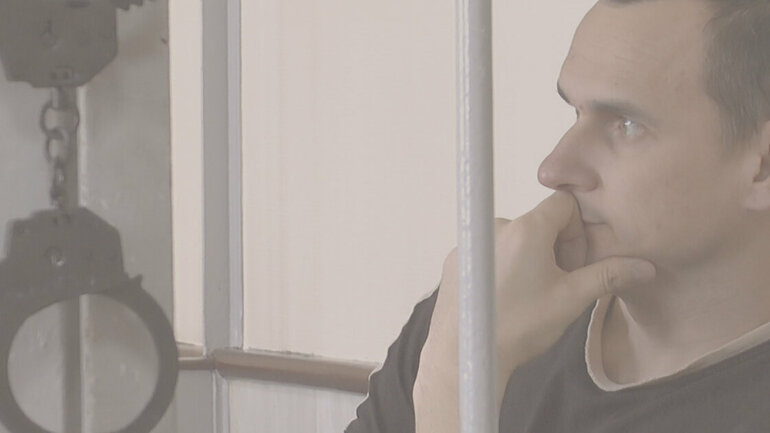The illusion of terrorism in Crimea

On 19 June, the European Union renewed for another year the sanctions it imposed after the annexation of Crimea. In its original resolution on 13 March 2014, the European Parliament did not mince its words, condemning Russia’s ‘act of aggression in invading Crimea’. The sanctions, announced four days later, targeted persons and organisations undermining the ‘territorial integrity’ of Ukraine.
Contrary to the war in the Donbas, where Western official discourse is more ambiguous (‘destabilisation’ rather than ‘invasion’ is the choice word in Donbas-related sanctions), the Western political-legal argument on Crimea has been clear: the unilateral change in the status of the border between Crimea and continental Ukraine is illegal, full stop. The International Criminal Court concurred, ruling that Crimea was de facto under a ‘state of occupation’.
In his triumphant annexation speech on 18 March 2014, Russian president Vladimir Putin argued that NATO expansion, seen after the 2013–14 Euromaidan protests as looming over Ukraine and the Black Sea Fleet, posed a security threat to Russia. In this view, the invasion of Crimea was a defensive reaction to an ill-advised policy initiated by the West.
In practice, however, Russia has resorted to a different alleged threat—the safety of its civilian kin—as the principle legitimising its annexation of Crimea. Hours before the Russian Senate vote authorising Putin to send the army into Ukraine on 1 March, the Russian Ministry of Foreign Affairs (MID) issued a curious note claiming that ‘unknown armed people sent from Kiev’ had attempted to storm the Crimean Ministry of Internal Affairs (MVD), causing casualties. Two days later, the Russian MID, while not acknowledging the presence of Russian troops outside the Sevastopol naval base, nonetheless indicated that Russia would defend against ‘possible attacks by extremists and radicals against our compatriots’.
The storming of the Crimean MVD was a pure fabrication. The ‘possible attacks’ never occurred and probably had no chance of ever occurring. And yet, twenty-three Crimeans have been charged with ‘terrorism’ since the annexation, the most famous being film-maker Oleg Sentsov. As a disturbing new documentary makes apparent, Sentsov is meant to personify the grave threat that Crimea fell under with the collapse of the regime of former Ukrainian president Viktor Yanukovych, the justification for the annexation. The film The Trial: The State of Russia vs. Oleg Sentsov, which premiered at the Berlin Film Festival, uses the calm, respectful, and captivating voice of Sentsov himself in courtroom interventions, with statements by lawyers and his cousin Natalya Kaplan, to tell a harrowing story.
Sentsov, internationally known for a 2011 documentary on computer gaming, was a Euromaidan activist in Crimea who helped besieged Ukrainian troops to evacuate in March 2014. In April, three young men threw a Molotov cocktail in the middle of the night at an empty building housing pro-Russian organisations, causing minimal damage. All three and Sentsov were arrested a month later and subjected to torture that included choking and electrocution, to make them incriminate themselves and Sentsov (they had never met him). Two of them cracked, but Sentsov and self-described anarchist Oleksandr Kolchenko did not.
Based on the two testimonies obtained under duress, the Russian Federal Security Service (FSB) announced that it had uncovered a plot by the Ukrainian right-wing group Right Sector to blow up bridges in Simferopol, Sevastopol, and Yalta. Arson, a much less serious charge in Russian law, became ‘terrorism’. Following Soviet tradition, the FSB invented a conspiracy to prove the claim that the annexation pre-empted violence against Crimeans.
The fabrication follows a political logic. Acceptable changes in state borders have followed three principles since World War II. The first was decolonisation, aimed at the overseas territories of France, the UK, and Portugal—a measurable criterion. The second was political paralysis at the centre, which sealed the fates of Yugoslavia and the Soviet Union. The third was mass violence against civilians, the principle used to recognise Kosovo, which is far more subjective in its interpretation than the first two, and therefore vulnerable to political disputes.
Russia reactively invoked ‘genocide’ to intervene in South Ossetia in 2008, when there was violence against civilians, and ‘terrorism’ in Crimea in 2014, when there was none. With a better reading of history, Western powers in 2008 could have anticipated that authoritarian regimes are prone to detach subjective assessments of violence from verifiable facts. As for Russia, it could have anticipated that individuals like Sentsov would not break. Quoting Russian writer Mikhail Bulgakov in his powerful final testimony, Sentsov stressed that ‘the greatest sin on earth is cowardice’ and that what he wished for Russians who did not believe the state propaganda about Crimea and Ukraine was that ‘they learn not to be afraid’.
Dominique Arel is the chair of Ukrainian studies at the University of Ottawa in Canada.